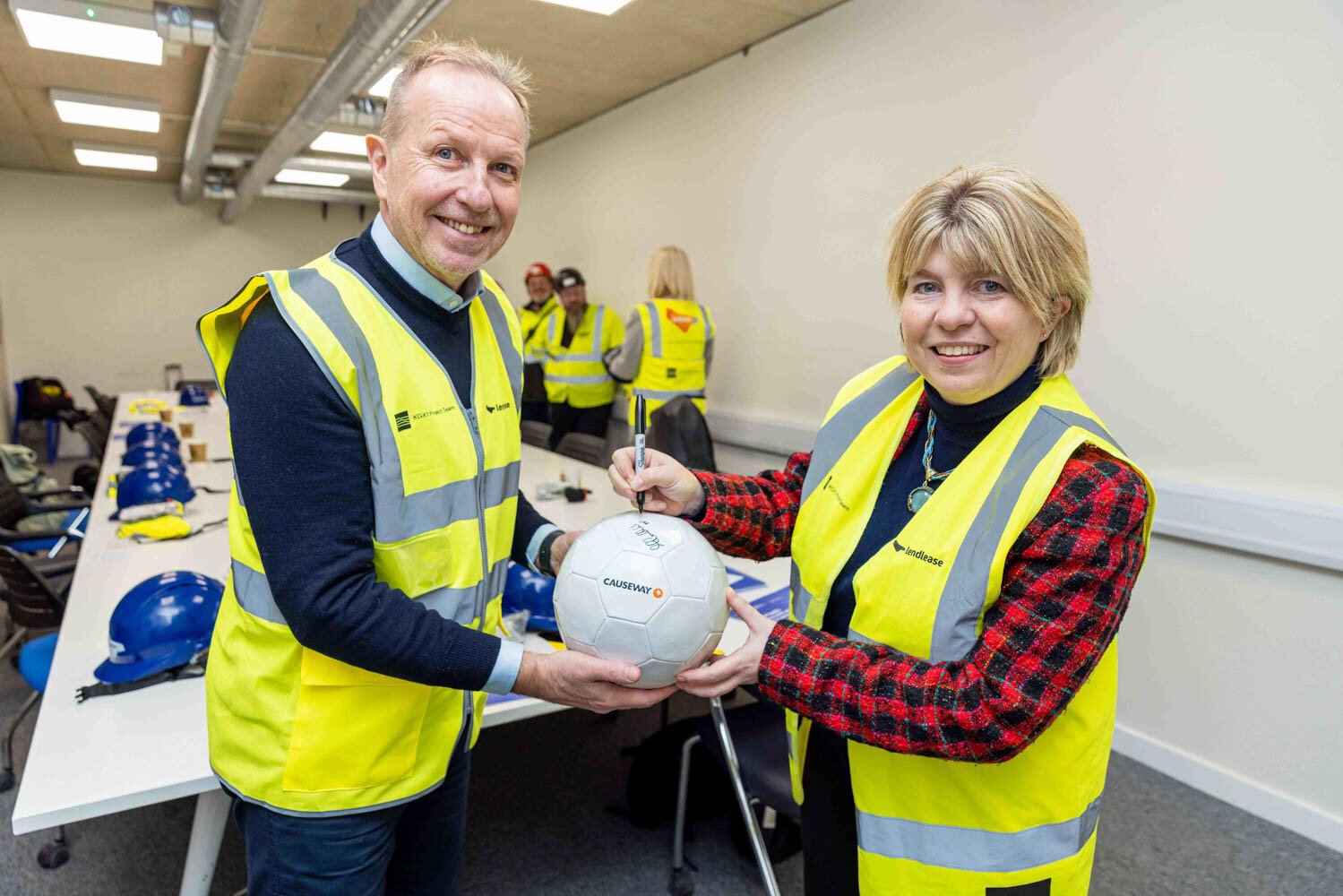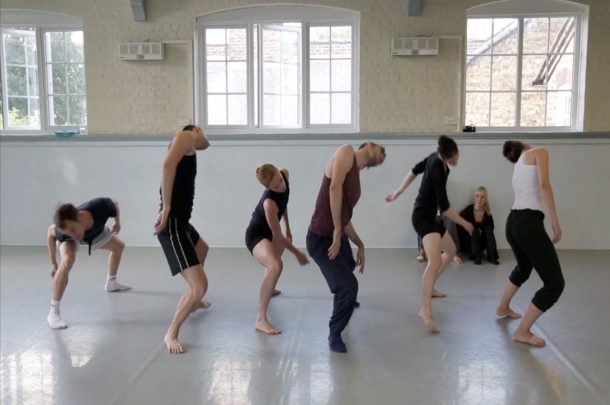To celebrate International Women’s Day, I sat down for a ‘virtual roundtable’ with three of Causeway’s new executive hires to get their thoughts on this important occasion.
As leaders in the tech and construction space, these inspiring women are in unique positions to offer insights into how far we have come and how far we still need to go.
In the first of three articles, we talk about what International Women’s Day means, the things businesses can do to support workplace equality, and what more men can do to be allies for women in the workplace.
 Emma O'Malley Emma O'MalleyChief Operating Officer |
 Rachael Baig Rachael BaigStrategy and Transformation Director |
Head of Acquisitions and Mergers |
 Carly Peacock Carly PeacockMarketing Campaigns Manager |
Firstly, thank you all for joining me. It’s so important to hear from leading ladies like you and conversations like this do so much to raise awareness and drive positive change.
Let’s start with the big question. What does International Women’s Day mean to you?
Emily: “I think back to the history. This day has been around for over 100 years and different countries have different practices. For example, in China, female employees are eligible for a half day holiday and also get some vouchers and gifts from their company.
This day should remind everyone, regardless of gender, that women are equal. But this is not the reality. We need to be more vocal about ourselves and our rights.
I just read an article in the Economist that has something called the Glass Ceiling Index, which ranks 29 countries in the OECD on equality for women in the workplace. Sadly, Britain ranks below average at number 20.
There are so many things we must do to make this right. The glass ceiling is starting to crack, but it’s not broken yet.
As women who worked in finance and now technology and construction, I feel like we’re unicorns. But that should change. We should empower women in their careers and set no boundaries to success.
Jobs should be awarded on merit, not gender or skin colour or where you came from. It’s wrong and this is a systematic issue we need to tackle.”
Emma: “I remember starting at Accenture 20 years ago. There were 60 people in my starting group with just six females, and they took on that same volume every month.
On reflection, I’d be surprised if there were only six girls in that same group now because we’ve come so far just by having the conversation. Not just among women but more widely. I’ve seen a significant change since then.
That’s part of the importance of International Women’s Day. It starts a conversation in terms of broader diversity and inclusion. Once we talk about these problems, we can address them.”
Rachael: “For me, International Women’s Day has always been significant because of the visibility it gives role models and the discussion it engenders.
I think of this year’s theme of Choosing to Challenge. It’s only through challenging and feeling empowered to have the conversation and being equipped for it, does change happen.
When I worked at Accenture, those senior women were doing the visible challenging and spearheading engagement in International Women’s Day, pushing the conversation about unconscious bias or levelling the playing field for female talent. That’s what International Women’s Day represents for me.”
What more can businesses do to help women get the rights and equality we deserve in the workplace?
Emily: “It’s a package. Start from hiring, especially when you are publishing a job description. Research shows that lots of adverts use words that appeal to men, so the company needs to be really careful about this during the hiring process.
Hiring managers need to ensure that interviewers, and anyone involved in the hiring process, limits the impact of unconscious bias. They should be educated to make it fairer, where people are judged on merit.
Once people are in the company, the culture is very important. Everyone should feel free to be themselves to do their job instead of being stereotyped to behave in an expected way. It’s wrong and can lead to dangerous areas that cause a single-mindedness that damages the business in the long-term.
Every employee should have the flexibility to balance their life and work. As a mum of a three-year-old, I know it’s not easy to find that balance. There are only 24 hours in a day. Give employees the flexibility to support their lifestyle, a good working environment, and performance feedback based on merit.”
Emma: “There is the opening up of conversation inside the business, and that’s crucial. But continuing on from Emily’s point, organisations need to consider how you write job adverts.
The way you write something will impact who applies for the role. There is a cliché about men seeing ten requirements and thinking “I’m perfect for it,” while women might think “I can only do six of them, I shouldn’t try.”
There is lots of theory, and not just for women but an all-inclusive perspective, on how you write your job adverts so we should be cognisant of creating equal opportunity advertisements for our roles.
There are lots of things that organisations could do around encouraging and running programs, like we’re doing with Everton in the Community and mental health. Girls in tech and girls in STEM. We should encourage that conversation too because it’s still a challenge.”
Rachael: “An example of unconscious bias happened systemically with the algorithms and GCSE results last year. If you went to a private school in an affluent area, then your grades were ratioed up. But, if you were a bright kid who went to a state school in a less privileged area, then your ratio dropped down.
Algorithmic decision making reflects the biases that exist in humans. From a gender equality context, it's important to become conscious of the biases we all have and put in place mechanisms to combat it so we can secure the best talent, make the best decisions and create the most innovative solutions for our customers, our industry and society as a whole.
The other point I would add to what businesses can do to level the playing field is to avoid hiring or making decisions for promotion based on for cultural fit. It's important to have very subjective processes and decision making to avoid group think. Well intentioned organisations can allow bias to creep in and become systemic
Emma: “I think that’s where unconscious bias training can really help.”
Emily: “Everyone should attend this training, or train ourselves, about unconscious bias. We probably don’t realise it’s there. I took it a few years ago and found it eye-opening.
Everyone in the business, especially management should undertake this course. We should keep ourselves up to date with the latest information and eliminate discrimination by any means.”
Do you think there is more our male colleagues can do to help create equality in the workplace?
Emily: “Men have friends, mums, wives and maybe daughters so they are surrounded by females.
Show empathy and be considerate. If colleagues need to drop their kids at school and meetings need to be rescheduled, we should understand. Everyone has their own tasks to do and women are usually caretakers, so put yourself in the other person’s shoes.
Make the working life more flexible for everyone. It’s crucial.”
Rachael: “When I think about the role models and influential people in my career who spearheaded the conversation, there were lots of men who advocated for change. Men who believed and championed diversity policies. Particularly for women in consulting and the diversity of thought that females brought, making sure the conversation was happening.
When we talk about International Women’s Day, we often forget that it’s still mainly men in positions of power. Therefore, the conversation around change needs to encompass both men and women.”
Emma: “You make an excellent point there Rachael. It makes me think about allyship, when it jumped from advocating to allying. It’s what I value now in my career. I don’t necessarily need someone to advocate for me anymore, but I do need someone to be an ally.
Because regardless of how senior you are, how experienced you are, how forceful you are or how strong a character you are – and I am many of those things to a terrifying degree sometimes – these things still happen.
People will talk over you, decide what you said and repeat your comments but take the credit for it. Having an ally in the room with you who says, “I think that just happened there or I think Emma was saying something” is still so important.
You’ve probably seen yourself Carly how vital allies are in this world.”
Rachael: “Especially for when you’re not in the room, having someone to say, “no, that isn’t OK.”
Many organisations have forced distributions, forced rankings, and talk about people’s performance objectives or development points.
Having someone in the room who’s prepared to challenge and put on the other hat and say, “would you give that feedback if we were talking about a male? Would you confuse ambition and competitiveness or being assertive with being abrasive?”
Much of allyship is about being the voice that questions when no one would know you did it.”
Thanks for reading the first part of this fantastic conversation between three of Causeway’s new senior hires. Come back tomorrow to read part two, where we discuss empowering people and moments, the importance of women in senior roles and how diversity of thought creates more productive organisations and societies, and more.



